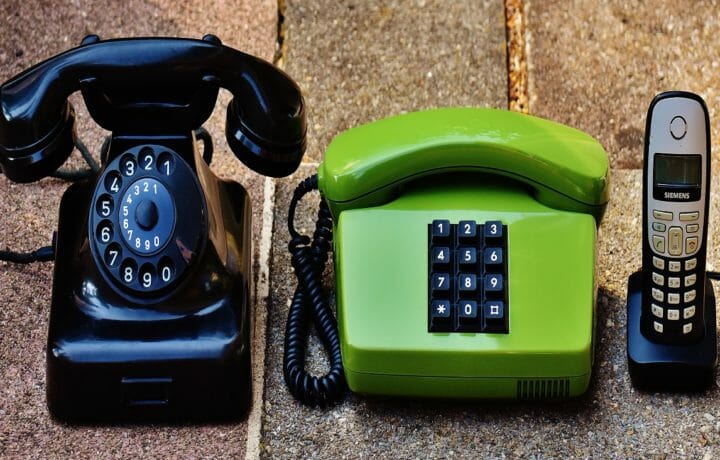Our abiding (though improving!) friend, the security clearance backlog, has had its positive side. When the backlog reached an all-time high of over 750,000 last year, it was a huge wake up call that something needed to be done. The backlog has forced the National Background Investigations Bureau (NBIB) to take a more risk-based approach to security clearance investigations. This includes – but isn’t limited to – the increasing incorporation of secure video teleconferencing and phone calls in the security clearance process.
So how often are parts of the background investigation conducted by phone? A recent commenter at ClearanceJobsBlog asks:
“Hi. Is it typical to go over [the] SF86 over the phone? Thanks”
What initially appeared as a straightforward question quickly invited a chorus of well-informed opinions. According to William Henderson, retired investigator, President of Federal Clearance Assistance Service, and ClearanceJobs contributor, use of telephone and secure video conferences is becoming more commonplace:
“I’ve had a number of clients in the U.S. who have been interviewed [Enhanced Subject Interview] by an OPM investigator by telephone. I’ve also had a couple of clients who were interviewed by an OPM investigator by secure video teleconference. The phone interviews don’t seem to be limited to cases with only minor derogatory information.”
But are phone or video interviews a good idea? Can candidates refuse to do them?
From many sources, we know that the security clearance apparatus is leaning more heavily on these new methods – but should they? Henderson has his reservations:
“Although the video teleconference ESIs don’t bother me that much, I’m concerned about how the investigator identifies himself/herself over the phone (e.g. display badge & credentials). I’m also concerned with how the investigators can be certain that he/she is talking to the Subject of the investigation…From an investigator’s point of view how do you read body language when you’re doing a telephone interview? Back when we were doing SBIs (19 years ago) at DIS/DSS and the only Subject Interviews (SI) for SBIs were triggered by known or developed issues, I can’t even imagine doing a telephone SI. When I left OPM in 2007 telephone SIs were strictly forbidden. I can accept the need to do VTC SIs when the Subject is located outside the U.S., but allowing telephone SIs just because you’re backlogged is compromising too much quality for the sake of timeliness. Unfortunately OPM has reduced its investigators to ‘fact verifiers’ and ‘lead runners.'”
This prompted the original poster to ask whether or not candidates should even agree to a phone or video interview. Even the process by which candidates can verify an investigator’s credentials could be compromised; as Henderson mentions, 21 million e-QIP files were stolen several years ago. You don’t have to wonder if your SF-86 data is good fodder for foreign intelligence services – our adversaries could easily use that information against us.
A current investigator on the thread echoed some of those concerns:
“There is a process for identification – it is not very good and I have had several Subjects decline to do their TESI by telephone (it is their option). Though I have had a few willing to do the ID process (normally they call NBIB for my identification info) and I have to report how I was able to identify the Subject in my ROI (usually PII [Personally Identifying Information] and one piece of information on the SCA that is not common knowledge). I can see the VTC interviews staying around – I don’t know about the telephone TESIs – unless they start to allow facetime or similar technology to be used.”
If you have a tough security clearance question, you can post your questions or concerns on ClearanceJobsBlog.com.




